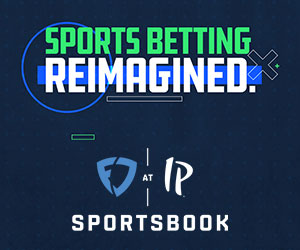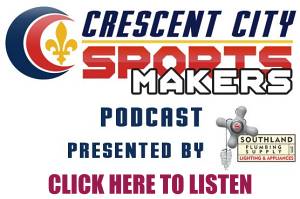Interview: Randy Livingston on the NBA, Pelicans, pandemic, social issues
He was one of the two best players in the nation as a high school senior at Newman.
While Jason Kidd was outstanding and nationally renowned, Randy Livingston was outstanding and equally as celebrated. The two guards shared National Player of the Year honors as Livingston averaged 30 points per game in his final season with the Greenies.
Livingston signed with LSU but a serious knee injury, a torn ACL in his right knee, curtailed his progress. He would play in just 32 games in two seasons for the Tigers and Dale Brown.
Livingston went on to play part of 11 seasons in the NBA with 10 different teams.
Newman retired his No. 50 jersey in 2013.
In 2018, Livingston returned to Newman as the top assistant to Jimmy Tillette. When Tillette retired, Livingston was promoted to head coach at his alma mater and he guided the Greenies to the Division III semifinals this past season.
With the uncertainty of the NBA season resuming now in late July in Orlando due to coronavirus concerns among players and coaches and social justice issues with some players feeling playing basketball would detract from, Livingston understands the landscape, expressing his views on The Three Tailgaters Show on 106.1 FM Saturday morning.
“I think as a player and as the NBA Commissioner, you have to evaluate every situation and all situations,” Livingston said. “Personally, it’s my profession, I get paid to play basketball, this is how I feed my family. If they tell me everything is safe and they have all the protocols in place, these are some of the best athletes in the world and I would think with some of the best care. Some of the coaches that are older, I would have some concerns. We know this disease is real but I think the NBA has it covered.
Were he still playing in the league, Livingston has no doubt what he would choose to do in late July.
“If it was me, I would play,” Livingston said. “I know people are saying it’s about the money, it’s about the players. Of course it is. You’ve got to take care of your family. I know they have a TV deal and that’s how they get paid. They get paid form the owners, the TV revenue and at the end of the day, it’s what you signed up for. I know there is a pandemic. I know there are some social injustice issues but if it was me and they’ve crossed all of the ‘t’s’ and dotted all of the ‘I’s,’ I would play.”
Despite his opinion, Livingston is not sure what is going to happen.
“I’m not convinced of anything,” Livingston said. “I hope it happens. I think with all of the resources the NBA has, they can figure it out and lead getting back to a substance of normalcy. I think they can pull it off. I’m a little better than cautiously optimistic.”
Livingston is a fan of the Pelicans and of the team’s leadership.
“They definitely have an incredible amount of potential,” Livingston said. “They’ve got a great source of young talent. David Griffin was in Phoenix as a video coordinator when I was playing for the Suns (1998-2000). Part of his job was to take care of the family room. He’s come an amazing way and has done a tremendous job building a staff, getting Trajan Langdon, getting a lot of great basketball minds in here. He did an incredible job in a tough situation to trade Anthony Davis and get the package he got for him and then got very luck and got Zion Williamson. You get Brandon Ingram, you get ‘Zo (Lonzo Ball).”
Livingston likes the way Griffin has put the New Orleans roster together.
“He did it the best way possible,” Livingston said. “You get young talent, you get assets and he cleared a lot of cap space. That’s the one thing people don’t give him a lot of credit for. He cleared a lot of cap space. I think the franchise is set up for success. You just never know with potential. It can go one of two ways. It can crystalize and become very, very good and become a team that can compete for the Western Conference finals or it can be two or three years of rebuilding again.
They have a generational player in Zion Williamson. They’ve got a good group of veterans with Jrue Holiday, JJ Redick and Derrick Favors. They are set up for success. Trust me. I was really impressed when Dave Griffin took over the organization and what he did. It’s a bright future.”
Did Livingston encounter racism or racial tension growing up or in high school?
“For me, being a star athlete that I was growing up and my high school career being as celebrated as it was, you would think I didn’t deal with very much and I think for the most part, I had a smooth sailing,” Livingston said. Trying to be the best wasn’t easy. I played for a great coach in Billy Fitzgerald who understood some racial tension. He went to Jesuit and played St. Aug for the first time and he’s still friends with Harold Sylvester. I had someone that was a while male that kind of understood all that stuff.”
Newman was a totally different scenario than the world Livingston lived in.
“I grew up in the Calliope Projects,” Livingston said. “I was very lucky to have the background that I had. Academically, I was good at Newman but socially, there definitely was some adjusting. I didn’t realize it until my senior year when I was the only black in my graduating class because I was just so into basketball, doing what I did on the court and then it hit me, that senior year, not only that I was the only black but that I hadn’t really mingled with my class to much because in sports, you usually play with upperclassmen and stuff.
It was an odd feeling. I just think I was comfortable in my own skin. I knew who I was so I didn’t let it deter me. Looking back, it definitely was an adjustment but was like a wake-up call for me.”
Surviving and seeing the disadvantages and seeing hurt and anger as a youngster had in impact on Livingston.
“Early on in my life, I definitely dealt with a lot of stuff in the Calliope Projects,” Livingston said. “I had a single mom working her tail off. I really had to grow on my own. I saw things that I definitely hope a lot of young kids don’t see. I saw people get killed, I’ve seen drugs, I’ve seen rampant drug use, I’ve seen pretty much about everything that you can see when you grow up in that environment. I was good in school always. Education can obviously get a lot of things done.”
The experience at LSU was quite different but also a good one.
“There were people from all nationalities and ethnic groups so that didn’t really bother me,” Livingston said. “Traveling the country and getting exposed to so many different type of people really helped me in that area.”
Now, there is a chance for change.
“We just need to come up with a plan,” Livingston said. “I’ve seen, obviously, police brutality which is the biggest thing going on in Black Lives Matter but I think just systemic racism, itself, is just a tough thing and we have to have action. We have the bull by the horns now. I think we have to do it peacefully. We’ve got to have a plan because eventually, this is going to die down. I know everybody thinks they have the stamina to do it forever but while we have it, we’ve got to put some plans in place to just stem the tide a little bit.”
When the smoke of discourse, discord and discussion clears, there is a clear desire for most, if not all of us in our country.
“I’ve been in the environment with whites, blacks, Asians,” Livingston said. “It doesn’t matter. People are people. At the end of the day, we just have to come together and this has become a world movement. I have friends in Australia that are marching. I think something good will come out of this. It’s definitely a tough time in America. We’ve got two pandemics going on at one time which is unbelievable.”
While the world searches for the proper medication to deal with COVID-19 and a vaccine to prevent and eliminate it, Randy Livingston is seeking the proper medication to heal centuries of wounds in the community of mankind, seeking to eliminate it while serving a positive role model for his Greenies.
- < PREV St. Augustine's Herbert Watts receives academic grant from Jack Fielkow Scholarship Program
- NEXT > NFLPA advises players to end private offseason group workouts
Ken Trahan
CEO/Owner
Born and raised in the New Orleans area, CCSE CEO Ken Trahan has been a sports media fixture in the community for nearly four decades. Ken started NewOrleans.com/Sports with Bill Hammack and Don Jones in 2008. In 2011, the site became SportsNOLA.com. On August 1, 2017, Ken helped launch CrescentCitySports.com. Having accumulated national awards/recognition (National Sports Media Association, National Football…






